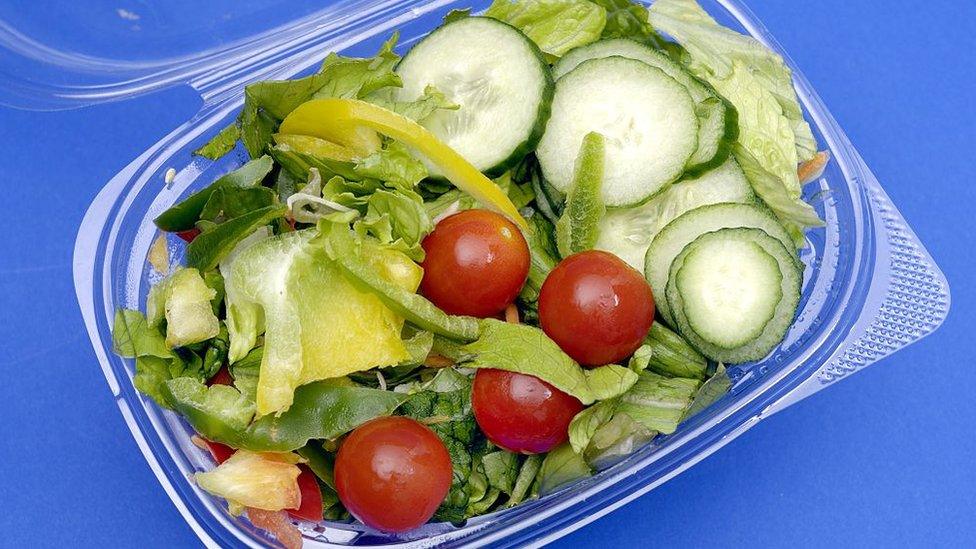Pret allergy death: Parents 'delighted' by 'Natasha's law' plan
- Published

The law, which is set to come into force in 2021, will be named after Natasha Ednan-Laperouse
A law protecting allergy sufferers will be introduced following the death of Natasha Ednan-Laperouse.
The teenager died after an allergic reaction to a Pret A Manger baguette.
Under "Natasha's law", food businesses will have to include full ingredients labelling on pre-packaged food.
Natasha's parents said "helping save other allergy sufferers and their families from the enduring agony that we will always bear is a fitting legacy for her life".
Environment Secretary Michael Gove said the couple were an "inspiration".
"These changes will make food labels clear and consistent and give the country's two million food allergy sufferers confidence in making safe food choices," he said.
The law, which will apply to England, Wales and Northern Ireland, is set to come into force by the summer of 2021.
Businesses will be given a two-year implementation period to adapt to the changes.

Natasha suffered a severe reaction after eating sesame in a baguette
Natasha's parents have also launched a charity in memory of their daughter.
The Natasha Allergy Research Foundation was announced by Tanya and Nadim Ednan-Laperouse on Tuesday, with the couple aiming to establish a research centre at the University of Southampton to find a cure for allergies.
Mrs Ednan-Laperouse said: "It will be groundbreaking, the first of its kind.
"Here we will fund and harness allergy medical breakthroughs, support academic and industry research and develop new therapies that will offer hope for effective allergy treatments."
Natasha's father says listing ingredients "makes complete sense"
The Duchess of York said she was "very proud" after being asked to be patron of the foundation.
Natasha, 15, suffered a severe allergic reaction after eating sesame in an artichoke, olive and tapenade baguette bought in Heathrow Airport.
She died of anaphylaxis after collapsing on board a flight to Nice on 17 July 2016.
'Full ingredient labels'
The coroner looking into her death said Natasha had been "reassured" by the lack of specific allergen information on the packaging.
Pret a Manger said it was "deeply sorry for Natasha's death" and said it would be listing all ingredients on its freshly made food.
A spokesman said: "Full ingredient labels are now in over 60 Pret shops as part of our nationwide rollout.
"Before we took this step, we ran a number of pilots to confirm that this approach would be safe, practical and effective.
"We are pleased that the Government has chosen to support full ingredient labelling."
Tanya and Nadim Ednan-Laperouse have campaigned for a change to the current rules which state that food pre-prepared on the premises in which it is sold does not need to display information about allergens.
They said they were "delighted" by the announcement and thanked Mr Gove and Health Secretary Matt Hancock for "their unflinching support".
The announcement was also welcomed by the Food Standards Agency, which said the change would mean "better protection" for allergic consumers.
Carla Jones, chief executive from Allergy UK, said the charity was "delighted".

How are sandwiches labelled?

Supermarket sandwich: Already has to list full ingredients including allergens
Over-the-counter sandwich: If it's made to order in front of you, it doesn't currently need a label.
Pre-prepared sandwich: If it is made on the premises, it doesn't currently need a label, just a sign nearby prompting customers to ask about allergens.

- Published25 June 2019

- Published28 September 2018

- Published8 May 2019

- Published18 October 2018
